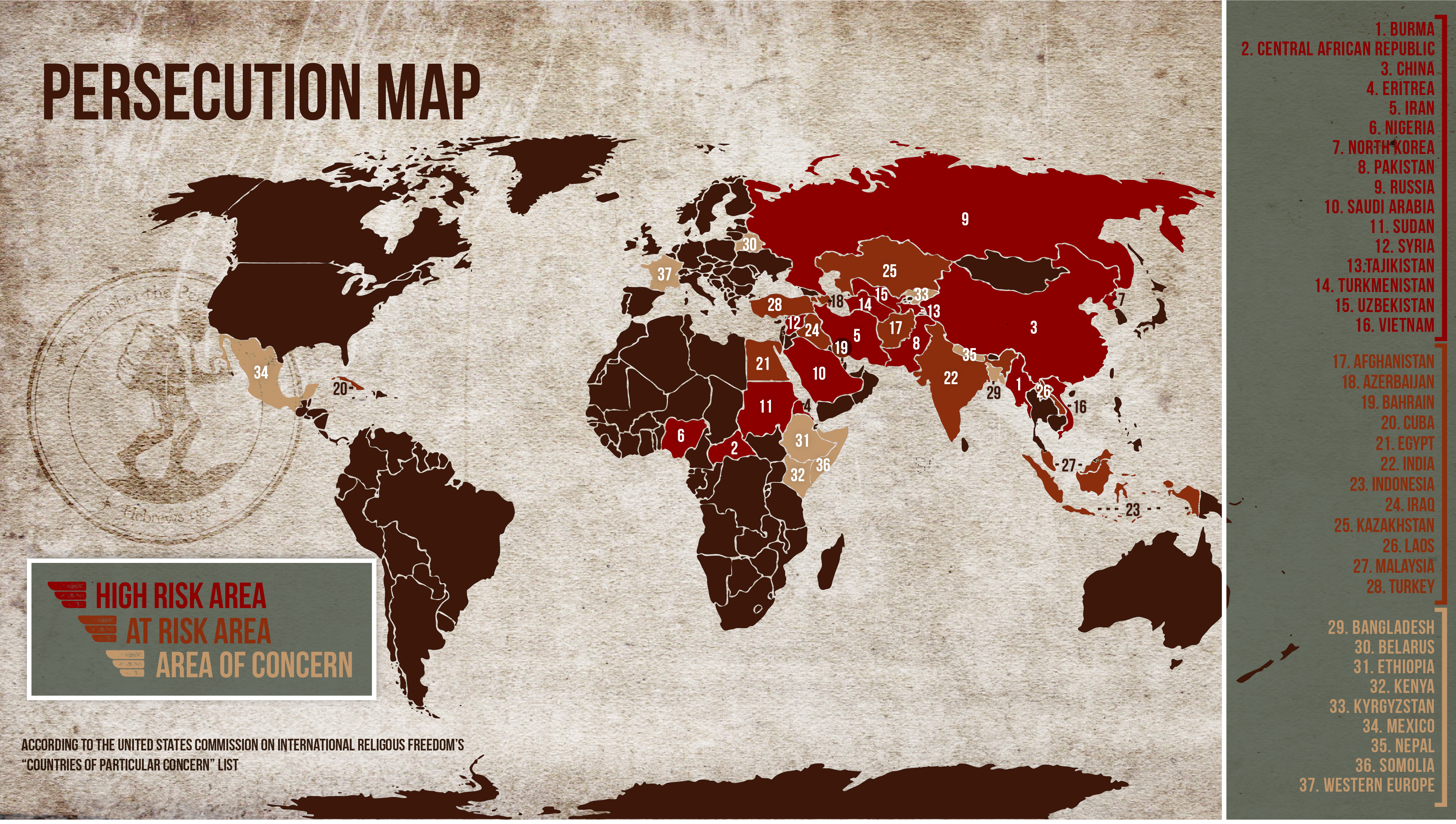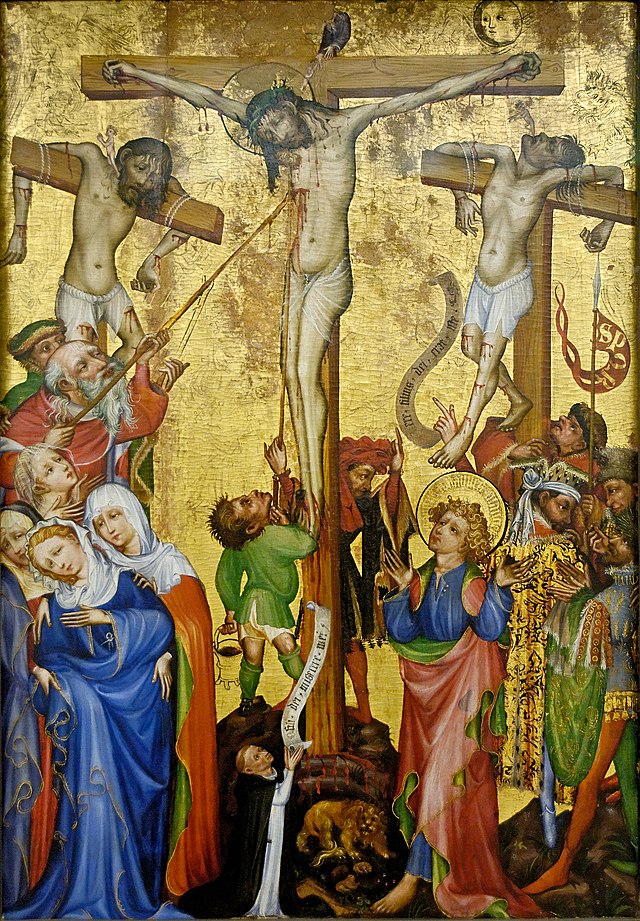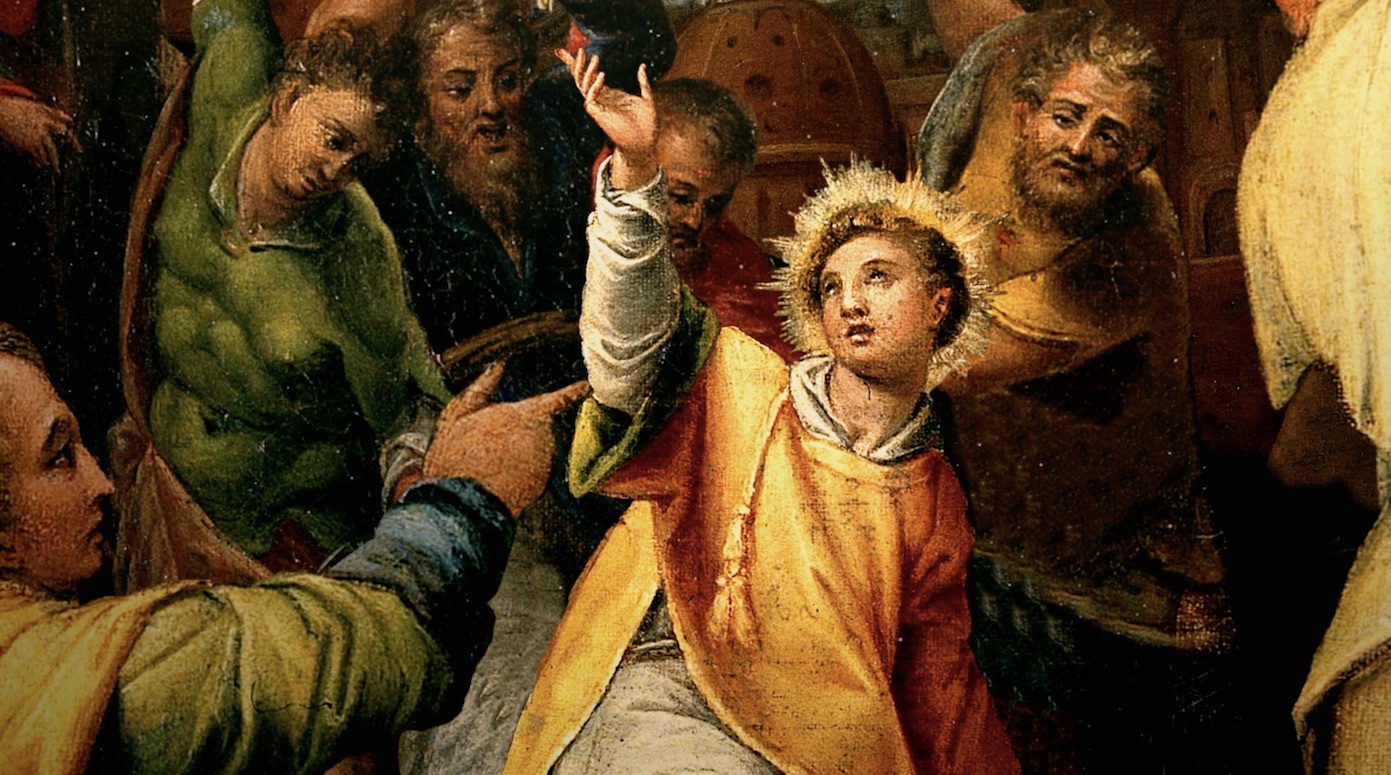Below is the Bible Study written by Jim Rudiger for his Sunday School Class which meets at Third Presbyterian Church, Norfolk, Virginia. It's based on 1 Peter 4:12-19.
There’s a lot of suffering going on. Suffering from people dealing with masks, vaccines and the Taliban. Suffering from closed churches during the times of marriages, births and lost loved ones. Families, teachers and students when a nut case brings a gun to school. Where else have you seen suffering lately? Suffering comes in two flavors - physical and emotional. Physical suffering with pain that is there day and night. Temporary suffering from accidents or the flu. Emotional suffering from watching a loved one face a fatal disease or watching the Oriole bull pen. Seems like a lot of suffering going on today, but when we sit down and go through our personal histories, suffering has been a constant unwanted companion all of our lives. A lot of times we don’t like to talk about our suffering, because it might appear that we’re looking for pity. But, sometimes talking about our suffering might help other people face what you have been through.
In today’s study, Peter discusses suffering. For us living today, Peter challenges us with two questions: What ways do we share in Christ’s suffering today? What suffering comes our way simply because we are Christians? Let’s see if we can get some help by what Peter tells the Christians in Asia Minor.
1 Peter 4:12 Beloved, do not be surprised at the fiery ordeal that is taking place among you to test you, as though something strange were happening to you. 13 But rejoice insofar as you are sharing Christ's sufferings, so that you may also be glad and shout for joy when his glory is revealed.
How does Peter start these verses? Beloved. Now, do you throw around the word “beloved” or do you save it for somebody special? Only the special people are called “beloved.” When we use that word, we are saying that there is someone who we believe deserves our love? So, this word carries with it the idea that there is something deep in the bond between the person who says it and the person who hears it. And that was true with Peter and the Christians in Asia Minor. These Gentiles in Asia Minor weren’t strangers to Peter. They were people who he knew and had a personal relationship with them. He cared for them deeply. As loving as the word is, Peter is setting the tone for what he has to tell them about the suffering that is coming their way. He knows what they don’t know. Nero had torched Rome blamed the Christians for he fire. The Romans were pretty sure that Nero started the fire. Fearing retaliation, Nero blamed the fire on the Christians.
Rome had been persecuting Christians for about three years before Peter wrote this letter to the churches in Asia Minor. He had seen the horrors that came to the Christians in Rome and he feared that it will spread to these churches. He is in a unique position to prepare them for that suffering.
It wasn’t as if the Christian Gentiles in Asia Minor had not had some problems. I’m sure that the Jews there were harassing them. By this time the Jews resented the idea that Gentiles could have a relationship with THEIR God. When the Gentiles became Christians, some of their old buddies dumped them. Some may have lost their jobs or people no longer wanted to buy what they sold - all because of their Christianity. When you became a Christian, did some people treat you differently?
In some ways, dealing with persecution was more difficult for these Gentiles than it was for Jews. Jews had been persecuted for thousands of years. They had been put down and picked on for so long that they were used to it. But, this was all new ground for these Gentiles. Peter is writing to these Gentile Christians to tell them that being a Christian is never going to be easy. Being a Christian brings it’s own set of problems. What are some of the problems being a Christians might bring? Loneliness. Unpopularity. So what’s a Christian to do? Peter says that there are certain things that we have to keep in mind.
What’s the first thing they have to get ready for? In Peter’s view, persecution is inevitable because Christians ARE different and people have problems with others who are different. Last week we talked about Christians being holy. To be holy is to be set apart from others who aren’t saved. To be set apart is to be different. Unfortunately, how do people treat others who are different? Dislike. Suspicion. Avoid them. It is an unfortunate side of human nature that people act this way. So all of these things come into play when someone becomes a Christian, but, the difference is magnified. Why do you think this happens with Christians? Because we measure people’s conduct against Christ’s conduct. People don’t like to be told that something they enjoy doing is wrong. Most of the persecution that Christians face today is due to Christians calling for a moral standard that is out of step with what the world wants to do. The Christians who the world praise are the one’s who compromise their faith so they won’t offend the world.
So, what’s the world’s response to Christians and Christianity? Christians are dangerous people, so, any activity that might enforce their standards has to be defeated. That translates into: no public prayer; no celebration of Christmas or Easter; twist the separation of church and state to mean that churches should be driven out of the states.
Just think back to when we were going to grammar school. What did you do in school in December then? Sing Christmas carols. Draw pictures of the stable in Bethlehem. Make ornaments to decorate the Christmas tree in the classroom. I remember saving up foil off the chewing gum wrappers and wrapping it around a gum ball to hang on the tree. How many of you cut strips of different colored drawing papers and linked them together for garland? What would happen if a school tried to celebrate Christmas like we did when we were children? Folks, there’s no doubt about it, the bad guys are winning.
What does persecution do to Christians? In Peter’s view, persecution is a test. How is it a test? A person’s devotion to a principal is measured by his willingness to suffer for that principal. This is true in the secular world, too. Washington, Jefferson and Adams were willing to suffer for their belief in an America free from foreign rule. The Christian suffers for their belief in a church free from foreign rule - rule of the world The Christian who doesn’t step back, who doesn’t compromise to get along with the bad guys, will be persecuted and will suffer. And, you know what? He not only passes Peter’s test - he gets an A+. The Christian who compromises with the world and shuts his eyes to the evils that the world wants, won’t be persecuted, but, he’ll gets an F. And F stand for failure no matter how hard school boards try to make it sound like it is “needs improvement.”
In all of this, what should we do? Rejoice. With all of these problems, we should rejoice? In Peter’s view, persecution is sharing in the suffering of Christ. When a person suffers for his Christianity, he is walking in Christ’s very footsteps. Christ’s footsteps were always carrying him toward more and more suffering culminating not with the crucifixion, although that was horrible to endure. No. Christ’s greatest suffering was being loaded with the sins of the world to the point that he felt so far away from God that he feared that everybody’s sin on his body had made God turn his back on him. That was Christ’s greatest suffering. Paul tells us that to suffer with him results in what? Gladness and shouts of joy. Why? Because we will be glorified with him. The bottom line is that suffering for Christ sake, becomes a privilege and not a penalty.
This all comes together because of what? In Peter’s view, persecution is the way to glory. Simply put, Peter recognizes that Christ doesn’t owe us anything for following him. We owe him everything for being allowed to follow him. It is through the cross that we see the crown offered by Christ. And that crown goes to the Christian who sticks with Christ through thick and thin no matter how tough the suffering is, he is our Savior.
1 Peter 4:14 If you are reviled for the name of Christ, you are blessed, because the spirit of glory, which is the Spirit of God, is resting on you. 15 But let none of you suffer as a murderer, a thief, a criminal, or even as a mischief maker. 16 Yet if any of you suffers as a Christian, do not consider it a disgrace, but glorify God because you bear this name.
Peter is going to make it abundantly clear about the suffering he is talking about. How will the world deal with Christians? Revile them. What does it mean to revile someone? Call them bad hateful names like “Yankees” or other verbal abuse. But, being reviled turns into what? A blessing. A blessing? What is the blessing? If a person suffers for Christ, then the spirit of glory rests upon him. That’s what Peter says. The spirit of glory rests on you. Sounds really great doesn’t it? What is this “spirit of glory” that he is talking about? Anybody here seen it? Sounds a little like getting something and not knowing what you’re getting.
Here is what Peter is talking about. The Jews had a concept of the presence of God. It was that there was a luminous glow anywhere God was. In Exodus Moses tells the Israelites that “in the morning, you shall see the glory of God” - the pillar of fire And when Moses was about to go up on Mt. Sinai, we are told that the glory of God had settled on Mt. Sinai. When the Israelites completed the first tabernacle, the glory of God filled the tabernacle. You didn’t see God, but, you knew he was there because of what? There was this shining light that signaled his presence. All through the Old Testament, this glowing glory marked the presence of God.
Peter felt that a little bit of this glory was absorbed by anyone who suffered for the sake of Christ. When Stephen faced the mob ready to stone him to death, we read that his face was glowing like the face of an angel. So folks, lets turn out the lights and let the glow of all you Christians light this room.
Peter now turns his attention to other forms of suffering. He wants to differentiate between suffering for Christ and just ordinary every day suffering that comes from living in this world. What other sufferings does Peter list? Murderer, thief, a criminal or somebody who is a mischief maker. How do murders and crooks suffer? By being locked up or executed. Are murders and crooks respected? Well, maybe respected when they get elected to congress. But Peter doesn’t limit this suffering to criminals. Who else does he include? Mischief makers.
Why mischief makers? They don’t kill or rob you. Sounds kind of pickie doesn’t it? Ever know a mischief maker? What does a mischief maker do that’s so bad? He or she may ruin the reputation of somebody or might cause concern or worry for somebody. What is the difference between the suffering of these people and those suffering for Christ? These people suffer because of what they did TO other people. Christians suffer for what they do FOR other people. Two little prepositions, “to” and “for”, mean the difference between glory and hell. Those “to” guys deserve what they got. The Christian doesn’t. All right, Peter, I get your drift, but, can you tie this down a little tighter, so, I know which suffering is good? If a Christian suffers for Christ, it is done because it brings glory to God and glory to Christ. It’s a “put the other guy first” kind of suffering. A suffering where you endure anything to advance the gospel. You see, the Christian should live his life so that when he suffers, others will say that he doesn’t deserve the suffering.
1 Peter 4:17 For the time has come for judgment to begin with the household of God; if it begins with us, what will be the end for those who do not obey the gospel of God? 18 And "If it is hard for the righteous to be saved, what will become of the ungodly and the sinners?" 19 Therefore, let those suffering in accordance with God's will entrust themselves to a faithful Creator, while continuing to do good.
Peter now defines suffering. We can suffer for things that we have done to hurt people and deserve the suffering. Or, we can suffer for Christ. He knows that these Gentiles in Asia Minor have had some experience with suffering, but, he also knows first hand what is heading their way. As Peter sees it, when it comes to suffering, it is necessary for Christians to do it right. The time for what has come? Judgement time. And where does this judgement time start? With the household of God. I must be missing something here. The bell just ain’t ringing clear. Let’s break this into two parts.
Peter says the time has come for judgement. What is he talking about? Could be talking about how bad the suffering will be that the Romans are going to bring to them? Peter believed that the suffering that they have gone through and the even more severe suffering that is coming their way is just setting up the final judgement. And I do mean final judgement. Book of life open and all of that stuff. Anybody know when this final judgement will happen? How do we measure time? Calendars. Clocks. Seasons. To us these are the things dealing with time. But, there is another kind of time. It is God’s time. And that is the time Peter is talking about. God’s time is the “right time.” The time that is aligned with God’s purpose. There was a time to create. There was a time to pick a chosen people. There was a time to move that chosen people out of Egypt. There was a time to bring his Son into the world. There was a time to form the church. Included in this time line is also the final judgement time. As far as Peter was concerned, that judgement time had already started. What do you think the judgement time will be like? The thinking back then was that judgement time wasn’t specifically to punish those who don’t believe. It wasn’t a time to judge only those who persecute or make fun of the church. It’s not even judging those who are always breaking the law. Where does the judgement start? With the household of God.
Who is the household of God? The church. That doesn’t seem fair. The first people to be judged is the church. I don’t know about you, but, I always consider that things that get judged first get judged the hardest. You made your best pumpkin pie and enter it in the pie cooking contest. If your pie is the first one that the pie judge tastes, he has nothing to go on about the quality of the other pies in the competition, so, he will be very critical in judging your pie. As he tastes some of the bad pies cooked by people like me, the judge begins to alter his judgement and even a mediocre pie begins to taste good. Maybe even a Mrs. Smith’s frozen pie gets the first prize. So, there are the good guys, Third Presbyterian Church, being judged first. Does that seem fair to you? Here are people who have done their best to live a Christ like life. They have endured suffering, the very suffering that Peter said was the right kind. And these good church going people will have to be judged first like they were a common criminal and not a paragon of virtue.
What about the others? The ones who gave us a hard time all of our Christian lives. “Well,” Peter says, “Look at it this way. If the judgement begins with us, think what will happen to those who didn’t accept the gospel of God.” He could have gone on and quoted Proverbs which said “If the judgement of the faithful is frightening, just think what it will be like for those who do not have faith.” Maybe it is about letting the bad guys see that God is just with the good guys - he doesn’t give them a pass - and this will cause the bad guys to realize that their justice in the hands of a just God can really be severe compared to the good guys. It will be quake and shake time for the bad guys. Remember this, judgement doesn’t always end in punishment. You may be judged innocent and be given freedom.
Here is our problem and it isn’t very Christian. Don’t we get a feeling of revenge when we think about all of those unbelievers who made our Christian life so hard getting their due? I have to admit that there was a little satisfaction when I found out that Major Hasan, the Fort Hood terrorist, would be paralyzed from the waist down for the rest of his life. But, the emphasis of God’s judgement is on the insiders, the church. The people who should know better. Being a believer doesn’t get us a “Get out of jail” card. We will stand before God and will be judged like all of the other sinners. The big difference is that there has been a plea bargain for us that was acceptable to the judge. That plea bargain allowed another person to take our judgement and our punishment and that other person is the judge’s own son. Now, that’s a good deal in anybody’s book.
Peter says that everybody has to be judged, therefore believers are called to do two things. What are they? Trust God. Do good. God is faithful and can be trusted. The word used for entrust comes from a word that means “depositing money with a trusted friend.” Did you ever have something that meant a lot to you and you had to leave it with someone else for safe keeping? Who would you leave it with? Of course now a days, if it was money or jewelry we would probably put it in a safety deposit box. Back then there weren’t any banks or very safe places to put something. So, if a man had to go on a trip, what he couldn’t take with him, he had to put somewhere safe. So he left it with a friend. To be asked to keep something for someone else was regarded as one of the most sacred acts you would be called on to do. The friend was bound by his honor and religious traditions to return everything intact. This is how we entrust God. A friend that won’t let us down.
But, God is still going to judge us. Does he have to come down hard on us? Can’t he just wink and wave us on? He can’t be the good judge and not judge based on the facts. If we had a judge that changed the law to let a criminal go free, what would you say? The ACLU was the judge. A judge who doesn’t perform his job faithfully isn’t fit to be a judge. God is faithful when he judges. He cannot be false to his very nature. So, what hope do we have? Our only hope is God’s mercy - his grace. Trust is a virtue that is sacred to most people. If trust is sacred to people, just think how much more sacred it is to God. This entrusting ourselves to God is the same word Jesus spoke from the cross when he said, “Father, into your hands I commit my spirit.” Christ entrusted his life to God because he knew that God wouldn’t fail him. And so can we.
Because Christians trust in God’s mercy as we face judgement, we are to keep doing good. How long should we be doing this good? Obviously, As long as we are alive and kicking. One last question wraps this up. What acts constitute doing good? Those things that please God. It’s Golden Rule time.
So what can we take away from this study? We started out asking two questions. What ways do we share in Christ’s suffering today? What suffering comes our way simply because we are Christians? We share in Christ’s suffering when we reach out and comfort our brothers and sisters. When we feed the hungry. When we visit the sick. When we clothe the naked. When we do these for the least of us, we are doing them for Christ. Just remember that our small suffering reduces the suffering Christ endured on the cross. There will be times when we suffer just because we are Christians. Times when we will be made fun of. Times when defending Christian morals and scriptural demands will be identified by the world as unchristian. The bottom line is that there is going to be suffering in this world. There is suffering that we bring on ourselves and it doesn’t advance our spirituality one bit. But, there is suffering for Christ that gives us confidence when we face that final judgement. Peter tells us that when we enter that judge’s chamber, we will be wearing the crown fashioned and shaped by that suffering. And the spirit of glory will be resting on us.
Prayer: Father, be with those Christians suffering for Christ right now, right today. May we have the privilege in sharing in that suffering. Amen.








No comments:
Post a Comment